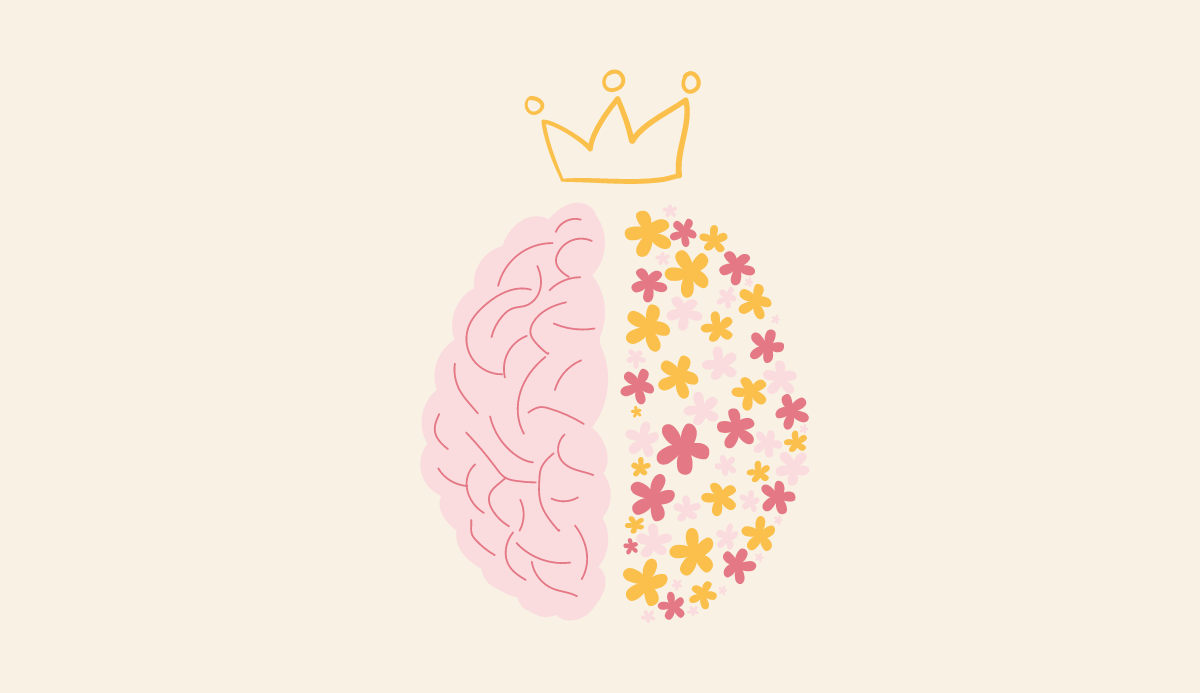ADHD Brain vs. Normal Brain: 7 Surprising Ways ADHD Brains Are Totally Different

Have you ever wondered why people with ADHD seem to think and act differently? I’ve learned a lot about how the ADHD brain works, and it’s super interesting! In this article, we’ll explore the cool differences between ADHD and non-ADHD brains. I think this info can help you understand yourself or your friends with ADHD better. Let’s dive in and see how ADHD brains are special!
Table of Content
What’s ADHD and how does it change the brain?
ADHD stands for Attention Deficit Hyperactivity Disorder. It’s not just about being distracted or hyper. It’s actually a brain difference that affects how people think and act.
In my experience, people with ADHD often struggle to focus on boring tasks but can get super focused on things they like. For example, a kid with ADHD might have trouble doing homework but can play video games for hours without a break.
How do scientists look at ADHD brains?
Scientists use cool tools to look inside the brain. They’re like special cameras that can see how the brain works.
Here are some ways they study brains:
- MRI scans: These take pictures of the brain’s structure.
- fMRI: This shows which parts of the brain are active.
- EEG: This measures the brain’s electrical activity.
I think it’s amazing that we can actually see inside our heads!
How is the ADHD brain shaped differently?
ADHD brains might look a bit different from other brains. Some parts may be smaller or grow at a different speed.
For example:
- The front part of the brain, which helps with decision-making, might be smaller.
- Parts that deal with emotions and memory might also be different sizes.
But remember, brain size doesn’t affect how smart someone is. These differences just show that ADHD brains are unique.
How do different parts of the ADHD brain talk to each other?
In ADHD brains, different areas might not communicate as well as in other brains. It’s like having a phone with a bad signal in some areas.
This can explain why:
- Someone with ADHD might easily notice a bird outside the window during class.
- They might daydream more often.
I’ve noticed that my ADHD friends often come up with creative ideas because their brains connect things in unique ways.
What’s different about the brain chemicals in ADHD?
ADHD brains have different amounts of certain brain chemicals. One important one is called dopamine. It helps with motivation and feeling good about accomplishments.
In ADHD brains:
- There might not be enough dopamine.
- The dopamine might disappear too quickly.
This is why people with ADHD often seek out exciting activities. For instance, they might enjoy risky sports or struggle to do chores without immediate rewards.
How does the ADHD brain handle information differently?
ADHD brains process information in a unique way. It’s like having a radio that picks up all stations at once instead of just one.
This means:
- People with ADHD might notice more things around them.
- They might find it hard to focus on just one thing.
- They could get overwhelmed in busy places like malls.
For example, a student with ADHD might struggle in a noisy classroom but thrive in a quiet study space.
Are there good things about having an ADHD brain?
Absolutely! ADHD brains have some cool strengths:
- They can be super creative.
- They might solve problems in unique ways.
- They can focus intensely on things they love.
- They often notice details others miss.
I know an artist with ADHD who comes up with the most amazing, out-of-the-box ideas for her paintings.
How does the ADHD brain change as you grow up?
ADHD brains grow and change just like all brains do. But they might develop a bit differently:
- Some parts might grow more slowly in kids.
- By adulthood, many brain areas catch up in size.
- ADHD symptoms might change as you get older.
For instance, a hyperactive kid might become less hyper as an adult but still struggle with focus.
Can your lifestyle help your ADHD brain?
Yes! The cool thing is, you can help your ADHD brain with some simple habits:
- Exercise can boost brain chemicals.
- Getting enough sleep helps your brain work better.
- Eating healthy foods, especially fish, can be good for your brain.
- Practicing mindfulness can improve focus.
I know someone with ADHD who started jogging every morning. He says it really helps him concentrate better at work.
How do treatments for ADHD work on the brain?
ADHD treatments work in different ways:
- Medicines: These boost brain chemicals like dopamine. This helps with focus and impulse control.
- Therapy: This teaches ways to manage ADHD symptoms. Over time, it can help change how the brain works.
- Organizing tools: Things like diaries and planners help too. They:
- Give structure to daily life
- Help remember important stuff
- Make it easier to manage time
- Create good habits
Lifestyle changes: You can help your ADHD brain with simple habits:
- Exercise boosts helpful brain chemicals
- Getting enough sleep helps your brain work better
- Eating healthy foods, especially fish, is good for your brain
- Practicing mindfulness can improve focus
For example, using a colorful planner can make it easier for an ADHD brain to organize tasks. It’s like giving the brain a helping hand. And I know someone with ADHD who started jogging every morning. He says it really helps him concentrate better at work.
What works best can be different for each person with ADHD. It often helps to try a mix of these treatments and lifestyle changes. The cool thing is, many of these strategies are things you can start doing right away to help your brain!
Key Points About ADHD Brains
- ADHD brains are shaped a bit differently.
- They handle information and brain chemicals in unique ways.
- ADHD can bring challenges but also special strengths.
- ADHD brains change as you grow up.
- Healthy habits can help ADHD brains.
- Medicines can balance brain chemicals in ADHD.
- Every ADHD brain is unique – what helps one person might not help another.
Understanding these differences can help you or your ADHD friends. Remember, ADHD isn’t a flaw – it’s just a different way of thinking!
Here are some reliable sources to find information about ADHD.
- National Institute of Mental Health (NIMH): https://www.nimh.nih.gov/health/topics/attention-deficit-hyperactivity-disorder-adhd
- Centers for Disease Control and Prevention (CDC): https://www.cdc.gov/ncbddd/adhd/index.html
- American Psychiatric Association (APA): https://www.psychiatry.org/patients-families/adhd
- CHADD (Children and Adults with Attention-Deficit/Hyperactivity Disorder): https://chadd.org/
- Journal articles from PubMed Central: https://www.ncbi.nlm.nih.gov/pmc/
FAQ: ADHD Brain vs. Non-ADHD Brain
What are the main differences between an ADHD brain vs a normal brain?
The main differences include variations in brain structure, function, and chemical balance. ADHD brains may have smaller volumes in certain regions, differences in brain connectivity, and lower levels of dopamine.
How do scientists diagnose ADHD and study the brains of people with ADHD?
Scientists use various methods to diagnose ADHD and study affected brains. These include behavioral assessments, brain imaging techniques like MRI and fMRI to measure changes in brain activity, and tests of executive function.
What areas of the brain are affected by ADHD?
ADHD can affect various brain regions, including the prefrontal cortex at the front of the brain, which plays a role in executive functions. Other areas include the basal ganglia deep within the brain and parts of the cerebellum.
What are the chemical differences in the brains of people with ADHD?
The main chemical difference involves dopamine in the brain. People with ADHD often have lower levels of dopamine, which affects motivation, reward processing, and attention.
How does brain development differ in children with ADHD compared to children without ADHD?
Brain development in children with ADHD may be delayed in certain regions. Studies show that the brains of children with ADHD may mature a few years later than those of children without ADHD, particularly in areas responsible for attention and impulse control.
Can adults be diagnosed with ADHD, or is it only a childhood condition?
Yes, adults can be diagnosed with ADHD. While symptoms often appear in childhood, many individuals don’t receive an ADHD diagnosis until adulthood. The symptoms and how ADHD affects the brain can change over time.
What causes ADHD symptoms, and how does ADHD affect brain function?
The exact causes of ADHD symptoms are complex and not fully understood. However, differences in brain structure and function, chemical imbalances, and genetic factors all play a role in ADHD. These differences affect how the brain processes information, manages attention, and controls impulses.
How do treatments for ADHD work on the brain?
ADHD treatments work in different ways:
- Medicines: These boost brain chemicals like dopamine. This helps with focus and impulse control.
- Therapy: This teaches ways to manage ADHD symptoms. Over time, it can help change how the brain works.
- Organizing tools: Things like diaries and planners help too. They don’t change the brain directly, but they:
- Give structure to daily life
- Help remember important stuff
- Make it easier to manage time
- Create good habits
For example, using a colorful planner can make it easier for an ADHD brain to organize tasks. It’s like giving the brain a helping hand. When you use these tools a lot, your brain might get better at planning on its own.
Are there any positive aspects of how ADHD affects the brain?
Yes, the ADHD brain can also have some advantages. People with ADHD may excel at creative thinking, problem-solving in unique ways, and hyperfocusing on tasks they find interesting. These traits are linked to how their brains process information differently.
How do differences in brain connectivity impact individuals with ADHD?
Differences in brain connectivity can affect how various parts of the brain communicate. In ADHD, there may be reduced connectivity in networks responsible for attention and focus, but increased connectivity in areas related to mind-wandering. This can explain why people with ADHD may struggle with sustained attention but also have moments of intense focus or creativity.
Charisma isn't genetic—these 10 research-backed strategies activate your brain's social reward cir
Transform chaotic mornings into manageable routines with these 10 ADHD-friendly strategies that will
Finding your way back to self-love can feel like quite a journey. In my experience, it’s





Leave a Reply